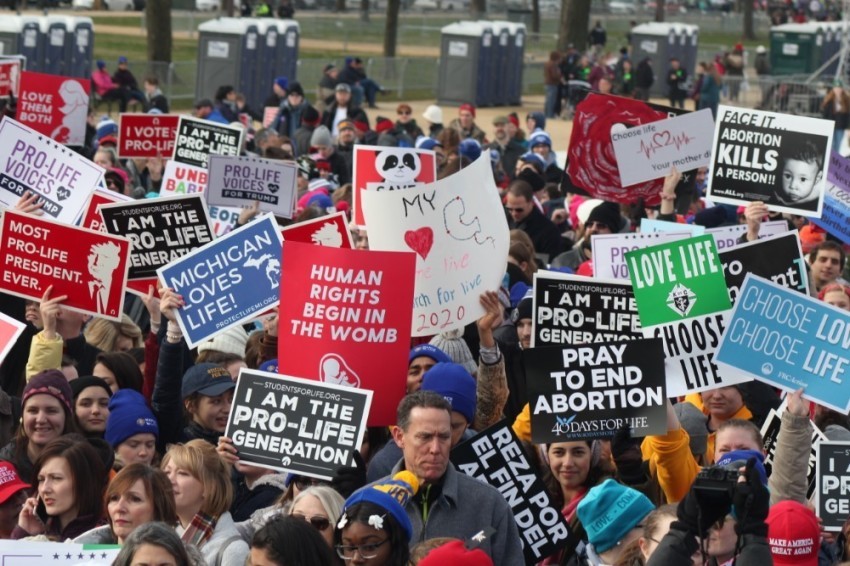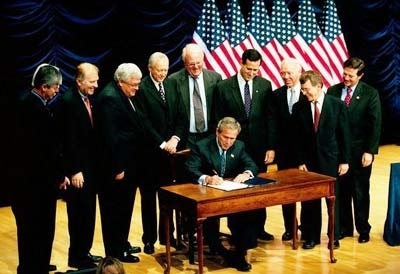‘Shameless lie’: Xavier Becerra denies existence of law banning partial-birth abortion
HHS secretary dodges questions on 'illegal, utterly inhumane' practice

The nation’s top health official denied the existence of a federal law that bans partial-birth abortions nationwide during a congressional hearing this week, receiving criticism from a prominent pro-life activist organization.
Rep. Gus Bilirakis, R-Fla., asked Health & Human Services Secretary Xavier Becerra during Wednesday’s House Energy and Commerce Committee’s Health Subcommittee hearing if the administration would uphold legislation banning partial-birth abortion.
Bilirakis also asked Becerra, the former attorney general of California and former member of Congress, if he believed the practice was illegal.
“We will continue to make sure we follow the law. With due respect, there is no medical term like ‘partial-birth abortion,’ and so I would probably have to ask you what you mean by that to describe what is allowed by law,” Becerra said. “Roe v. Wade is very clear. It [set a] precedent that a woman has a right to make decisions about her reproductive health and we will make sure that we enforce the law and protect those rights.”
When Bilirakis asked again if he agreed with the law banning partial-birth abortion, Becerra responded that “there is no law that deals specifically with the term ‘partial-birth abortion.’ We have clear precedent in the law on the rights that women have to reproductive health care.”
.@RepGusBilirakis: Will you uphold the law banning Partial-Birth Abortions?@SecBecerra: There is no such law…
— Susan B. Anthony List (@SBAList) May 12, 2021
Stop lying.
The law passed & Supreme Court upheld it.
This law bans killing a child when it is already partially born.
You voted AGAINST this law.
Shame on you. pic.twitter.com/vESTylewGS
When further questioned on the topic by Rep. John Joyce, R-Pa., Becerra said that his question “is not so much with the term partial-birth abortion, [it] is with what the rights are of the woman … I will make sure we are providing women with the protections they need on their reproductive rights.”
He further argued that while the term partial-birth abortion is "recognized in politics, it is not a medically recognized term."
"Perhaps if you were to talk about what you probably know as dilation and extraction, which is a procedure used by OB-GYNs like my wife to care for a woman who is having a difficult pregnancy where there is a chance the fetus will not survive, then we can talk about that," he stated. "But what I am saying to you is that under the law, a physician or any provider of healthcare much make sure that he or she abides by the law."
Marjorie Dannenfelser, president of leading pro-life advocacy group Susan B. Anthony List, said in a statement that Becerra has no excuse to “plead ignorance” on the partial-birth abortion topic and said his avoidance of the question was a “shameless lie.”
“During his confirmation hearings, Xavier Becerra dodged questions about his stance on partial-birth abortion – when an unborn child is partially delivered and then killed – deflecting with repeated claims that he would ‘follow the law’ as head of HHS,” Dannenfelser said in a statement.
“Now the top health official in America, Becerra outright denies the existence of a law banning partial-birth abortion since 2003.”
Becerra voted against the bill when it passed in the House in 2003 by a vote of 231 to 142. Because of that, Dannenfelser argues that “Becerra can hardly plead ignorance on this topic.”
Additionally, the U.S. Supreme Court upheld the law in 2007.
“This shameless lie is standard for the most radical pro-abortion administration in history,” she contends. “It should not be hard to recognize that partially delivering a baby and then suctioning his or her brain is not only illegal, but utterly inhumane.”

The Partial-Birth Abortion Ban Act of 2003, signed by President George W. Bush, prohibits physicians from “deliberately and intentionally” performing partial-birth abortions.
The legislation argues that a “moral, medical, and ethical consensus exists that the practice of performing a partial-birth abortion … is a gruesome and inhumane procedure that is never medically necessary and should be prohibited."
In a partial-birth abortion, the physician will partially deliver a child and killing it before the full delivery from the mother.
The law describes partial-birth abortion as “an abortion in which a physician deliberately and intentionally vaginally delivers a living, unborn child’s body until either the entire baby’s head is outside the body of the mother, or any part of the baby’s trunk past the navel is outside the body of the mother and only the head remains inside the womb.”
The bill states that the “overt act” “usually” results in the “puncturing of the back of the child's skull and removing the baby's brains.”
In a Senate hearing in February, Sen. Mitt Romney, R-Utah, asked Becerra why he voted against the partial-birth abortion ban.
“Most people would agree that partial-birth abortion is awful,” Romney said.
Becerra responded by saying that he understands that people have “different deeply-held beliefs on this issue, and I respect that.”
“I understand that we may not always agree on where to go, but I think we can find some common ground on these issues,” he said. “Everyone wants to make sure that if you have an opportunity, you are going to live a healthy life.”
“I think we can reach common ground on many issues, but on partial-birth abortion it sounds like we’re not going to reach common ground there,” Romney responded.
At the time, Sen. Mike Braun of Indiana asked Becerra if the administration would commit to not using tax dollars to fund abortions.
“We will follow the law when it comes to the use of federal resources,” he said. “There I can make that commitment that we will follow the law.”
Dannenfelser, who served as the co-chair of the 2016 Trump campaign’s pro-life coalition, argued that “Becerra’s responses further reveal the extremism of Biden-Harris Democrats.”
Carol Tobias, president of National Right to Life, said, “Becerra’s answers were disingenuous, evasive at best.”
“The members’ attempts to have Secretary Becerra clarify his stance on the Partial-Birth Abortion Ban Act were more revealing of the Secretary’s position than the Secretary’s ambiguous answers during his Senate confirmation hearings,” Tobias said in a statement. “As a member of Congress, Secretary Becerra voted against passage of the 2003 Partial-Birth Abortion Ban Act. The law passed and was found to be constitutional by the U.S. Supreme Court in 2007.”
Emily Wood is a reporter for The Christian Post. She can be reached at: emily.wood@christianpost.com



























